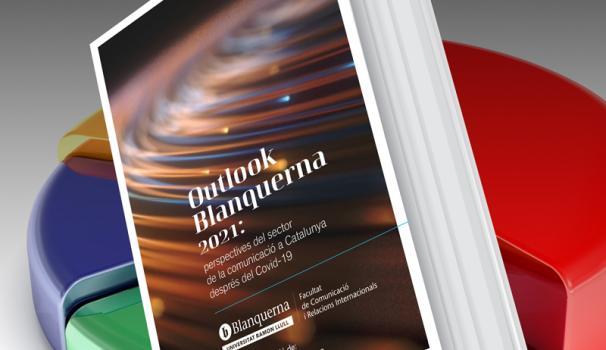May 28, 2021
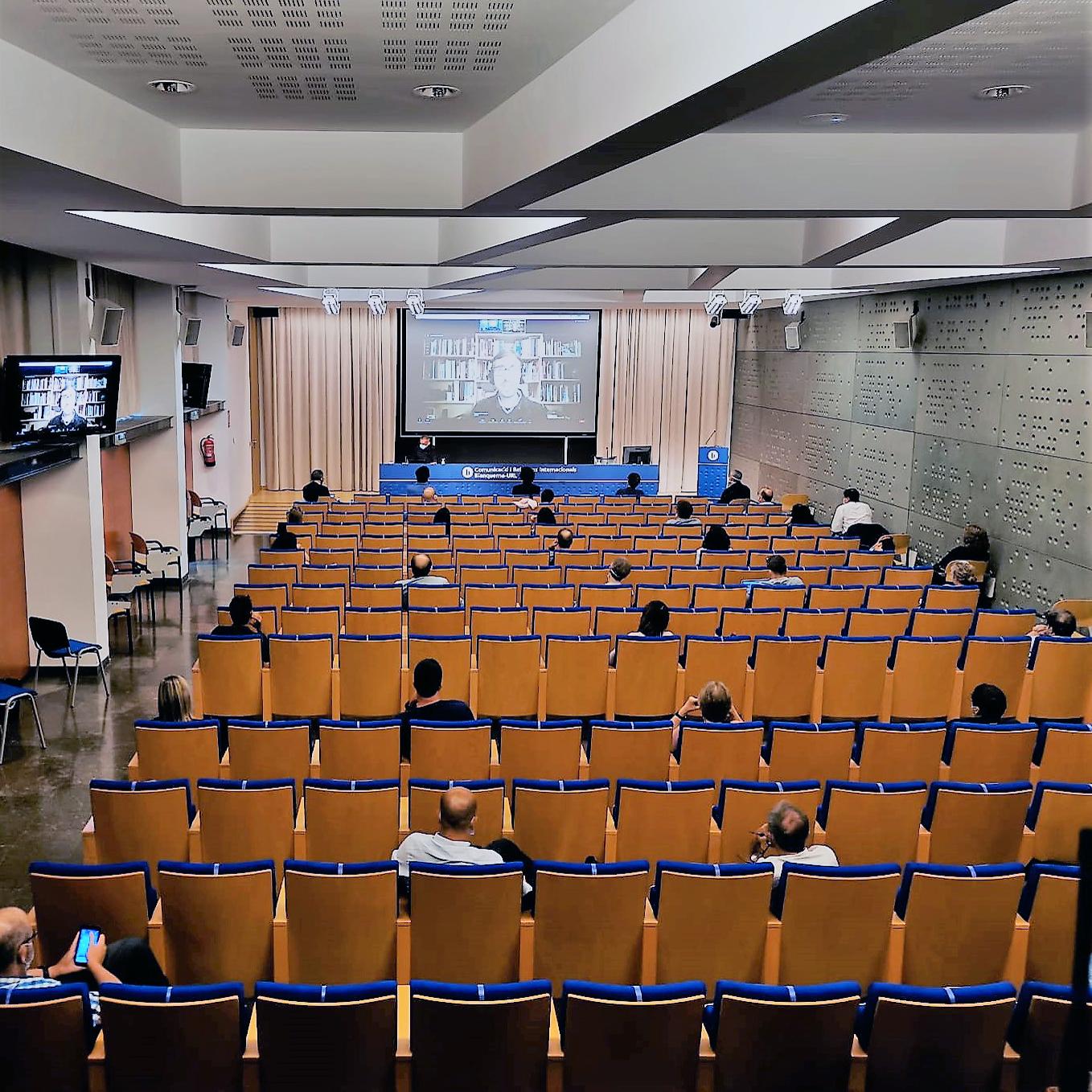
Technology and proximity, the keys to confined teaching
The faculty of the School of Communication and International Relations Blanquerna-URL shared its success stories during confinement in a session dedicated to good teaching practices in times of pandemic.
- Share:
The day had a representative sample of the educational team of all the degrees that are taught in the School, in addition to a live connection with Santiago of Chile, to listen to the journalist and professor Patricio Contreras, editor of the bulletin «Room of tools». It was an intense day where truly inspiring experiences were shared with the entire faculty, as well as tools and methodologies to face the 2020-2021 academic year with quality guarantees, depending on the evolution of the health crisis and the indications of the Administration.
Academic results versus the excitement of teaching
As a professor in the Humanities department, Dr. Carles Ruiz and the professor of the Degree in Journalism and Corporate Communication, Joan Maria Clavaguera shared the experience they had in March, when in a matter of days they had to turn the dynamics of the classrooms upside down due to home confinement.
Ruiz shared audiovisual reflections from the students of Communication Ethics II and showed an emotional piece made by a student which clearly demonstrated that beyond the academic results, the subject became an important emotional accompaniment.
With a more practical approach, Professor Clavaguera explained how his students successfully resolved to make a radio bulletin with the tools at their disposal from home. The use of new technologies, and the fact that they brought a professional spirit to their work, allowed students to adapt to a rather paradoxical situation and more than overcome it.
A participatory virtual campus
Dr. Lluís Anyó, professor of the degree in Audiovisual Communication, gave ideas about optimizing the use of Scala, our virtual campus, to provide clarity in the development of the subject, and also explained how to formulate the final exam from a variable model of questions.
For his part, Dr. Francesc Vilallonga, from his experience teaching the subject of Trends and Criticism of Contemporary Cinema, explained how he managed, with the casuistry of the new virtual format, to get his students to do the presentations of group work as if they were in the classroom. For him, encouraging student participation and interaction was a priority.
Keep it simple… and close!
The Vice Dean for Business and Innovation, Dra. Giorgia Miotto, professor of Advertising, Public Relations and Marketing, explained how the final project of the subject she taught became the central theme of the course and emphasized the “almost” personalized follow-up she implemented to get through the semester in a positive way. Miotto began her speech with a gesture of sincerity: "When I started giving classes online the first week, I realized that they weren’t working." That’s why she turned the KISS principle of design upside down, the one that says “Keep It Simple, Stupid!”, to this: Simple, but not stupid! A change of strategy with the analysis of real case studies linked to the present was her main resource for keeping the class alive.
Dr. Marc Polo brought to the table the challenge of managing a subject of 80 students as if it were a seminar: “They do not want a master class, they want a traveling companion to accompany them. They want a teacher that teaches and advises, not one that lectures.” For this reason, the teacher became a tutor and discovered the background of the issue: what his students valued most was not only the transmission of knowledge but the hours of dedication and the high degree of proximity, despite the immense social distance.
The squaring of the circle in video
From the Global Communication Management degree, Dr. Jaume Suau recalled that it is not necessary to reinvent the wheel in the face of the challenge of assuming educational models online or hybrid: "It is not necessary to be excessively radical when it comes to adapting our content", he said; we must remember that there is a long tradition of online teaching before the outbreak of Covid-19. In his case, the basic principle is to put himself in the student's shoes: at least six hours non-stop in front of the screen. To counteract this effect, Suau used asynchronous methodologies to deal with the demands of the new situation: more readings, more debate. Thus the complicity of the students in an Introduction to Political Science was gained.
Professor Emmanuelle Diehl explained her experience making videos with the Zoom platform, and then uploading them to the virtual campus. Students received them before class, they were split into groups, and then they worked with them offline.
In the case of the degree in International Relations, Dr. Javier Albarracín highlighted his experience in participatory learning: in his case, the success consisted in the ability to give feedback as soon as possible and turn the class into an international think-tank: “We studied a series of countries and a series of factors to determine what the world would be like in 2030”.
The tensions of learning online
To end the session, the Chilean journalist and university professor, Patricio Contreras, gave a lecture entitled: "From emergency to adaptation: ideas for tackling university virtual education", where he shared the main tensions he has detected in this period of transformation of the teaching model: transparency versus opacity, asynchrony versus synchrony, proportionality versus immoderation and autonomy versus control. A summary in 12 steps?
- We must recognize that we are learning.
- We have to show up in front of the camera.
- We do not hide our problems.
- We need to be aware that video calls are exhausting.
- Let’s think of moments and immediacy.
- Education will also be mobile.
- Face-to-face courses have not been uprooted.
- Your video should be six minutes long. Or less.
- We also evaluate the process.
- We invest in teaching and learning.
- Flexibility first and foremost.
- We plan to adapt.
Organized by the Vice-Dean Office for Research, Postgraduate courses and International Affairs, these best practices have complemented the different courses taught by Professor Jorge Coderch. The Dean of the School, Dr. Josep Maria Carbonell was in charge of opening and closing the day, which was led by the vice dean, Dr. Josep Lluís Micó.
Related news
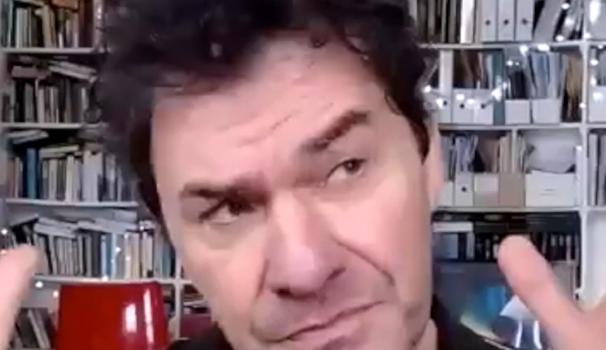
March 24, 2021
Mark Cousins shares the creative challenges of filmmaking with Blanquerna students
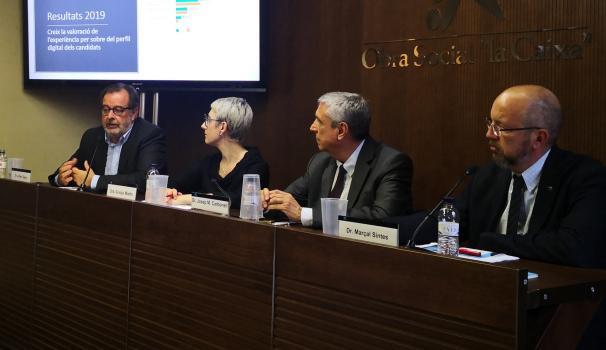
April 11, 2019
Communication sector focused on the use of Big Data
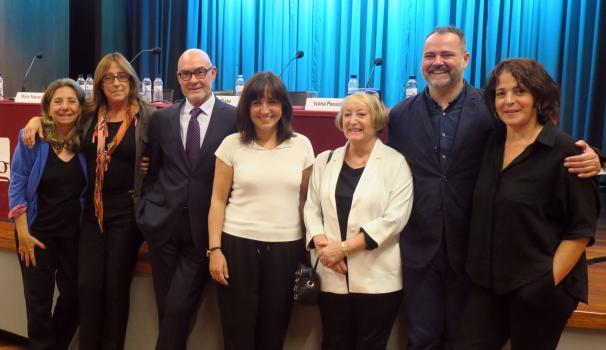
September 15, 2017
